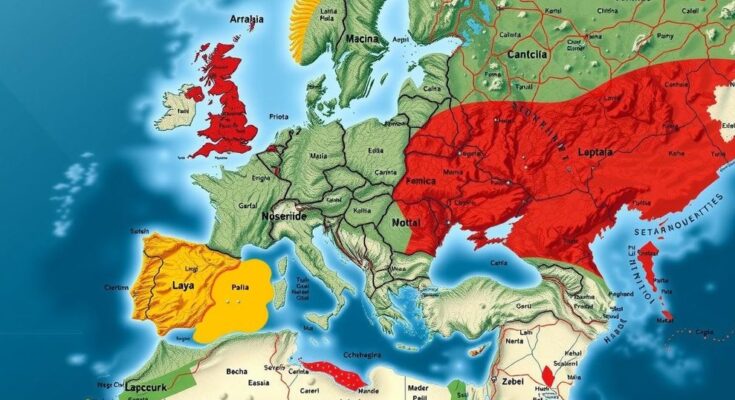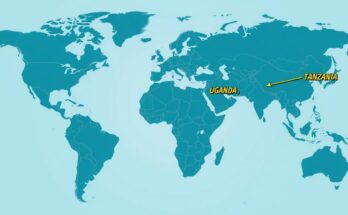Ongoing humanitarian issues in Gaza, Lebanon, Syria, and Ukraine include severe limitations on aid access, increased civilian casualties due to strikes, critical funding shortfalls, and widespread infrastructure damage. Urgent assistance is needed to address the dire conditions facing those affected by these conflicts as winter approaches.
Recent humanitarian reports highlight the critical situations facing populations in the Occupied Palestinian Territory, Lebanon, Syria, and Ukraine. In Gaza, the United Nations Office for the Coordination of Humanitarian Affairs (OCHA) raised alarms regarding severely limited access to North Gaza, as urgent humanitarian needs remain unmet. Recent strikes in Lebanon have exacerbated civilian casualties, particularly among children, while Syria continues to struggle with inadequate funding for humanitarian efforts. Meanwhile, Ukraine endures ongoing hostilities impacting civilians and infrastructure, leading to dire humanitarian conditions. In the Occupied Palestinian Territory, OCHA reports that access to the North Gaza governorate remains critically restricted. This situation has hindered humanitarian organizations, which submitted 50 requests for access in October, with 33 being denied outright. Efforts to evacuate injured individuals have also faced substantial barriers. Displaced families in Gaza are currently facing dire living conditions, lacking adequate shelter, food, and medical care. The onset of winter raises additional concerns related to health and safety, with urgent needs for blankets, clothing, and safe drinking water. In Lebanon, continued Israeli strikes over the weekend resulted in significant civilian casualties, including the tragic loss of 23 individuals in Byblos. OCHA emphasizes that all parties in the conflict are mandated by international humanitarian law to minimize civilian harm. Essential healthcare support is being provided to affected areas, but the situation remains critical, with over 200 child fatalities reported since October. In Syria, humanitarian leaders have issued a grave warning regarding a funding crisis, noting that only 27 percent of the needed funding for the Humanitarian Response Plan has been secured. With millions requiring urgent assistance, they urge donors to increase support rapidly. Additionally, an emergency appeal for assistance from refugees arriving from Lebanon remains severely underfunded. Ukraine is also grappling with the consequences of renewed hostilities. OCHA reports that recent attacks have resulted in significant civilian casualties and widespread infrastructure damage. Immediate responses from aid workers include the provision of essential supplies and support to affected communities. The World Food Programme has stepped up its efforts to address food scarcity in frontline regions by enhancing bakery operations to ensure access to bread and basic food resources. Each of these situations calls for urgent international attention and support to mitigate human suffering amid ongoing conflicts, underscoring the critical role of humanitarian assistance in stabilizing regions hit by violence and disaster.
The humanitarian crises unfolding in the Occupied Palestinian Territory, Lebanon, Syria, and Ukraine reflect the severe impacts of ongoing conflicts on civilian populations. Access to vital resources and assistance remains hindered due to military actions and political obstacles, resulting in dire living conditions for those affected. This pervasive climate of insecurity highlights the urgent need for international humanitarian support and coordinated efforts to address critical needs effectively.
In conclusion, the reports from OCHA illustrate urgent humanitarian crises in various global conflict zones, where civilian populations face life-threatening conditions. Immediate action from the international community is necessary to address the needs of affected individuals in Gaza, Lebanon, Syria, and Ukraine, ensuring that humanitarian assistance reaches those who need it most and that measures are taken to prevent further escalations of violence and suffering.
Original Source: www.unocha.org




